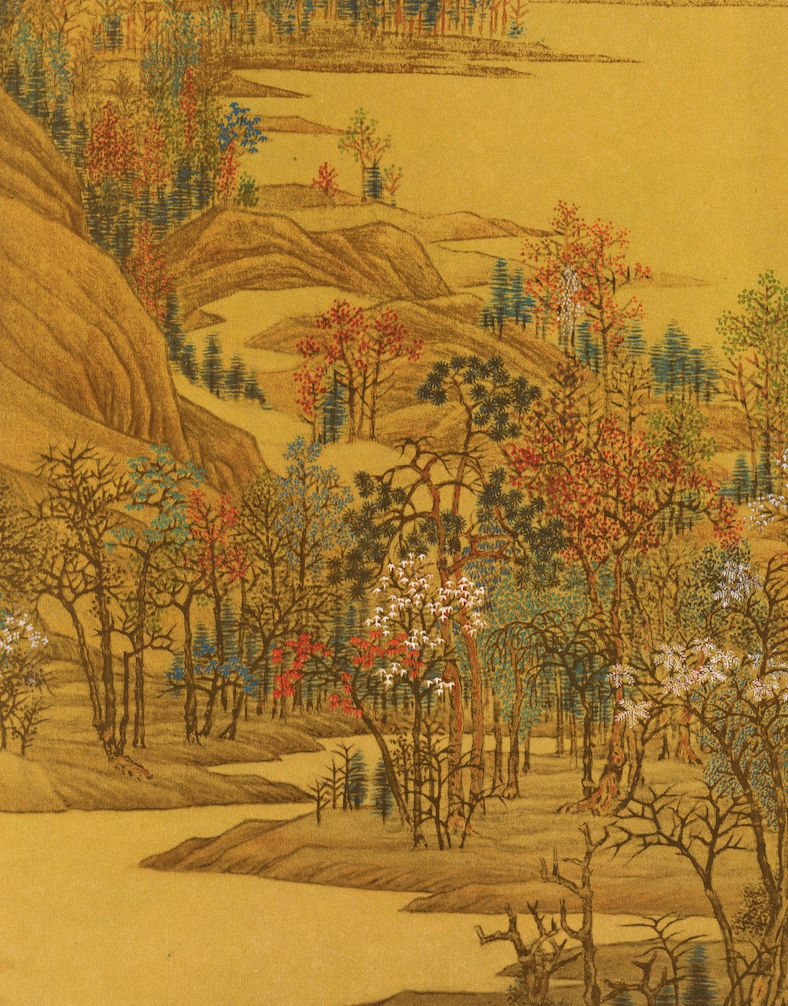Chu or 楚 - The Roots of Chinese Surnames: Exploring Heritage and History
- ChinaFetching
- Feb 7
- 3 min read
The Chu (楚) surname comes from the legendary State of Chu, a once-mighty kingdom that ruled southern China.
Though the kingdom fell over two thousand years ago, its name lived on—passed down by its descendants as a symbol of pride, resilience, and cultural heritage.
To understand the story of the Chu surname, we must explore the rise and fall of a state that once dominated the south, rivaled the strongest powers, and left a lasting legacy.

The Rise of Chu: From Humble Beginnings to Dominance
The surname Chu finds its roots in the legendary State of Chu, a once-mighty kingdom that ruled the south with vast lands, a flourishing civilization, and boundless ambition.
Its founding ancestor, Xiong Yi, was a descendant of the great Emperor Zhuanxu.
During the reign of King Cheng of Zhou (? — 1021 BC), he was granted the title of Viscount and established the State of Chu.
But in its earliest days, Chu was fragile and impoverished. It struggled to provide even the simplest offerings to its ancestors.
Yet, the people of Chu were relentless.
Through unyielding perseverance, back-breaking labor, and an unshakable hunger for survival, they transformed Chu from a struggling frontier state into a rising power.

Chu’s Golden Age: Conquering the South
By the early Spring and Autumn Period (770 BC — 403 BC), Chu was no longer an obscure state—it was an unstoppable force.
One by one, the smaller states of the Yangtze River region fell under its rule.
In 704 BCE, Xiong Tong declared himself King Wu of Chu, breaking free from the Zhou dynasty’s influence and establishing Chu’s full independence.
Then came 597 BCE—a year that reshaped history. King Zhuang of Chu crushed the powerful Jin state, proving that Chu was no longer just a southern contender—it was a true hegemon, standing among the Five Overlords of the Spring and Autumn period.
As the Warring States Period (403 BC — 221 BC) unfolded, Chu reached its peak, both militarily and culturally.
The people of Chu cultivated a civilization known for its romanticism, mysticism, and grandeur—later called Chu Culture.
With its poetry, artistry, and spiritual traditions, this vibrant civilization continues to inspire and mesmerize to this day.

The Fall of Chu: A Battle Against Fate
But no kingdom stands forever.
In the north, Qin was undergoing radical transformation. Its legalist reforms turned it into an unstoppable war machine.
One by one, Qin’s brilliant strategists, cunning politicians, undefeated generals, and invincible soldiers marched southward, bringing devastation to Chu’s lands.
For years, Chu fought fiercely, refusing to surrender. Cities fell, warriors perished, kings fled—but the spirit of Chu remained unbroken.
Yet, in 223 BCE, after years of relentless war, the great Kingdom of Chu was conquered.
Its capital was destroyed, its rulers and nobles scattered, and its once-glorious civilization crushed under the weight of Qin’s empire.

The Enduring Legacy of the Chu Surname
But while the kingdom of Chu vanished, its name did not perish.
The royal descendants of Chu, refusing to let their homeland be forgotten, took "Chu" as their surname, carrying their lost kingdom in their blood for generations to come.
As centuries passed, dynasties rose and fell, and the people of Chu scattered across China.
Yet, wherever they went, the descendants of Chu continued to shine—as scholars, warriors, poets, and statesmen, leaving their mark on every era.

Chu Today: A Name of Legacy and Culture
Today, though not among the most common surnames, Chu remains a name of pride, resilience, and remembrance—a tribute to a kingdom that once ruled the south, challenged the mighty, and defied fate itself.
It is also a lasting symbol of Chu Culture—romantic, mystical, and boundlessly imaginative—a civilization whose influence can still be felt in Chinese history, literature, and art.
And though the kingdom has long faded into history, its name lives on—forever.

